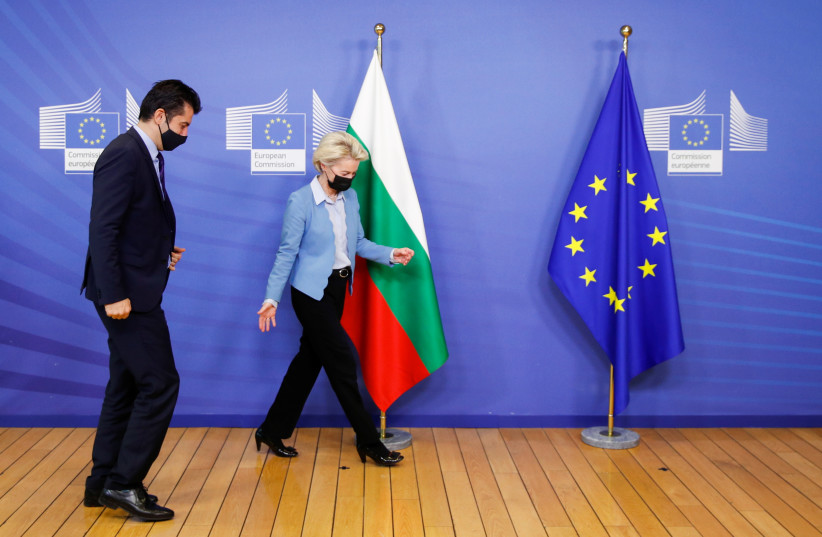An unofficial delegation of top Bulgarian politicians and officials attended an opening event of a Bulgarian-run cultural club in the North Macedonian city of Bitola. This seemingly innocent event caused a diplomatic crisis between the two countries.
The reason for the crisis is the club's name, the Ivan Mihailov Cultural Center. Mihailov was a Bulgarian revolutionary leader who operated in what today is North Macedonian territory. His link to Bulgarian nationalism, allegedly ruthless treatment of adversaries and sympathy for the Nazis make him a hated figure in North Macedonia. Bulgaria, however, sees him as a national hero.
The fact that the delegation included such high-ranking officials - including Prime Minister Kiril Petkov, Vice President Iliyana Yotov and Foreign Minister Teodora Genchovska - was therefore seen as a provocation amid a broader cultural and historical battle being waged between the two countries.
Bulgaria also refuses to recognize Macedonian as an independent language and views Macedonians as belonging historically to Bulgaria.
Despite the two sides signing a friendship agreement in 2017, Bulgaria barred the beginning of accession talks on North Macedonia to join the EU in November 2020 on the grounds that the friendship treaty was not being implemented in what they claimed was state-supported hate speech, demands to recognize the rights of the Bulgarian minority and an "ongoing nation-building process."

North Macedonia’s Prime Minister Dimitar Kovacevski reacted to the incident by snubbing the Bulgarian government of what it claims is the repression of North Macedonians in its territory.
"North Macedonia’s government, as well as the public, is eagerly waiting for the time to come when our neighbor [Bulgaria] will allow its citizens who, for example, define themselves as Macedonian, to practice their own convictions in the same way, freely," he was quoted in the Balkan Investigative Reporting Network (BIRN) as saying.
“Even the biggest optimists are starting to realize that after this reincarnation of fascism by Bulgarian state leaders in Bitola, Macedonia will not enter the EU,” former parliament speaker Tito Petkovski was quoted by BIRN as saying.
“The message [to people in North Macedonia] from Bitola is clear – accept that you are Bulgarians and only then we will let you start the EU accession talks. They [Bulgaria] want us to discuss whether Macedonians and the Macedonian language exist at all," he added.
